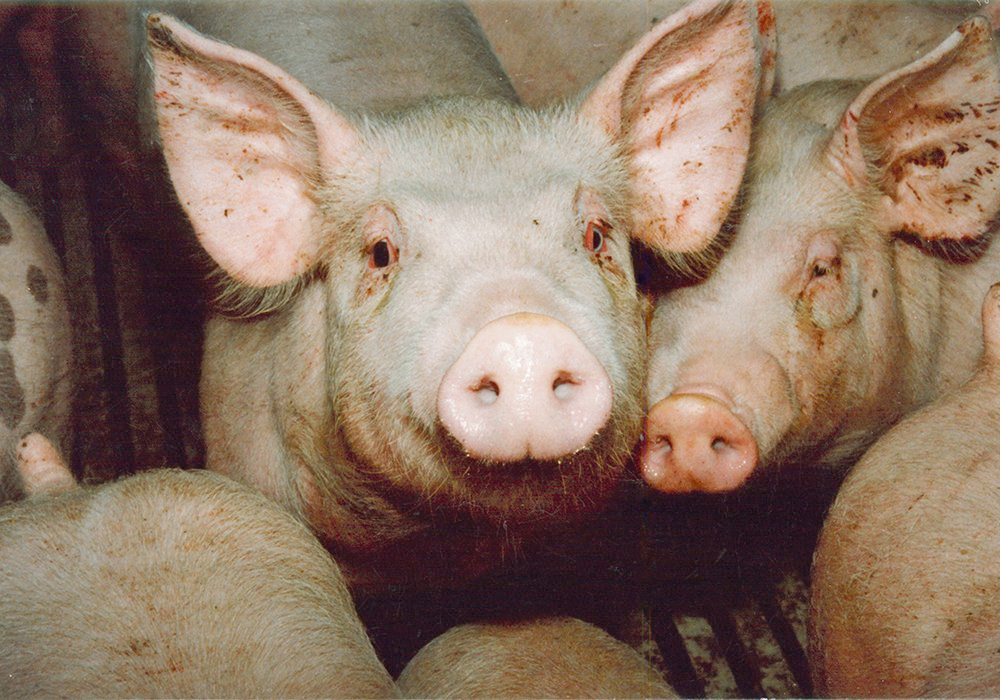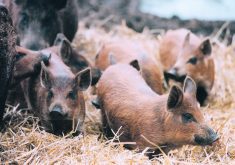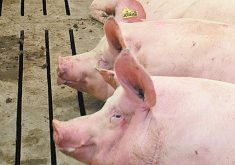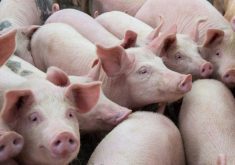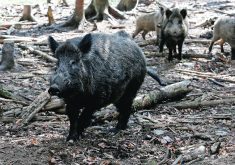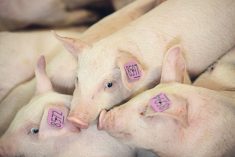Provincial producers approve a five cents per hog increase in the checkoff to pay for national body’s lobbying efforts; move is partly driven by concerns about the threat of African swine fever
The rising threat of African swine fever has partly prompted Alberta Pork to pass a resolution to create an extra levy of five cents per hog to strengthen lobbying of Ottawa by the Canadian Pork Council.
The five-year levy will only go into effect if other provincial pork organizations commit to a similar amount. It aims to boost the CPC’s ability to pressure the federal government to create safety net programs for pig farmers in case of an outbreak of the disease in Canada, said Brent Moen, chair of Alberta Pork.
Read Also

Volatile temperatures expected for this winter
DTN is forecasting a lot of temperature variability in the Canadian Prairies this winter. Precipitation should be close to average.
“The risk of ASF, if you look at what’s happened with that disease in other parts of the world — and the significant financial loss that it’s created to the producers and packers — it could decimate our industry,” he said. “So, I sort of look at it, for a nickel a pig, are we buying an insurance policy?”
Although Canada has never had a case of the disease, it was found last year in the Dominican Republic in the Caribbean, increasing the risk of it spreading to North America.
The resolution was overwhelmingly passed at the Nov. 24 annual general meeting of Alberta Pork in Calgary, which was attended by more than 175 people.
“Now, whether we can find part of that money out of our provincial levies, and part of that money out of our federal levies, I mean that’s to be determined,” said Moen.
“But I think a positive of this is that it sends a message to our national association that we as producers believe that this is critical, but that we will also support it financially if we have to, whether it be a direct levy or through realignment of our existing money.”
It is meant to address a problem faced by CPC and all the provincial organizations, including Alberta Pork, said Moen. He described them as “basically running on break-even shoestring budgets.”
The resolution was moved by Jurgen Preugschas of Five Lake Farms Ltd. near Mayerthorpe, Alta. As a former president of the CPC, he said most MPs had no idea pork is the largest meat industry in Canada.
“They all thought it was beef. Well, in actual fact, pork is significantly bigger than beef, and so that is a failing of our industry in telling our story.”
He said MPs must deal with many issues.
“And the people that talk to them the most is what they think are the most important issues, and therefore we have to be in front of them as an industry to talk to them about our issues, and about the positive aspects as well.”
Preugschas was encouraged by the support his resolution received from pork producers.
About 70 percent of the pork produced in Canada is exported to foreign markets, which would likely be closed in the event of an outbreak of ASF. Moen said it is vital to have safety net programs in place to keep farmers’ businesses whole through the potential crisis.
“So, when I look at this, well, five cents isn’t a lot of money if we can get that collectively across Canada. It creates a million-plus-dollar budget that’s available exclusively for lobbying to protect the opportunities and protect the future of our producers.”
An outbreak of ASF will likely have a deeper impact on the pork industry than BSE did on beef producers, said Moen.
Pigs are marketed every week “and we’ve got new animals coming in every week, so if ASF breaks and that export market is done, within a week to 10 days, we are in a situation where we have to basically … destroy our animals because we simply have no room for them,” he said.
“And not to mention that if that happens, the value of those animals is now zero, and your revenue stream to operate your business for the next 12 to 18 months is zero, so it financially cripples our industry.”
It will also affect the people who run its operations and work in its packing plants, said Moen.
“So, we have to have a long-term program in place that allows us to maintain our people, maintain our domestic production and maybe grow it a bit, but allows us to be in a position that when the borders do open, we’re in a position to actually meet that marketplace again instead of starting from zero, so it’s absolutely critical to us.”
The federal government announced Aug. 26 it was providing $45 million to help the pork industry deal with potential outbreaks of ASF. It included about $23 million to prevent and mitigate the spread of the disease through biosecurity assessments, retrofit of existing abattoirs, ASF research projects and wild pig management.


